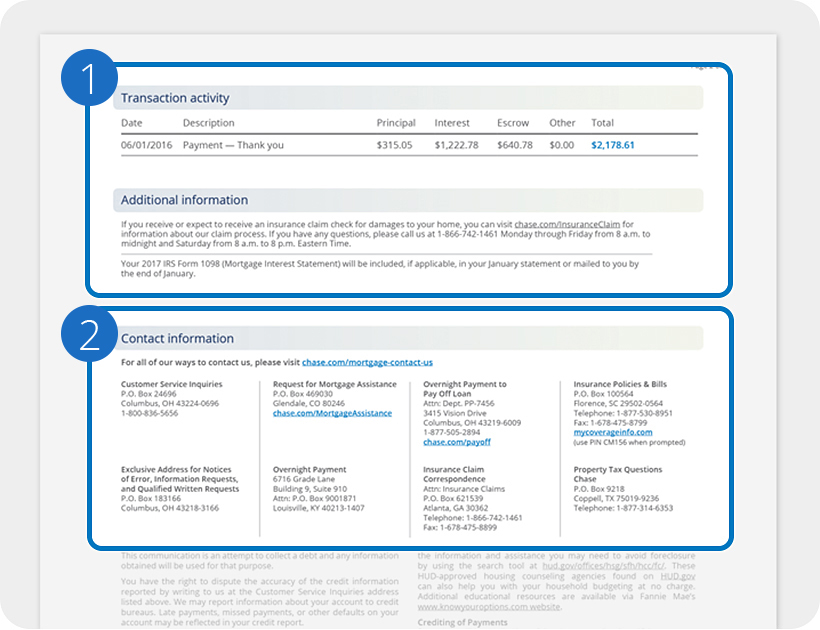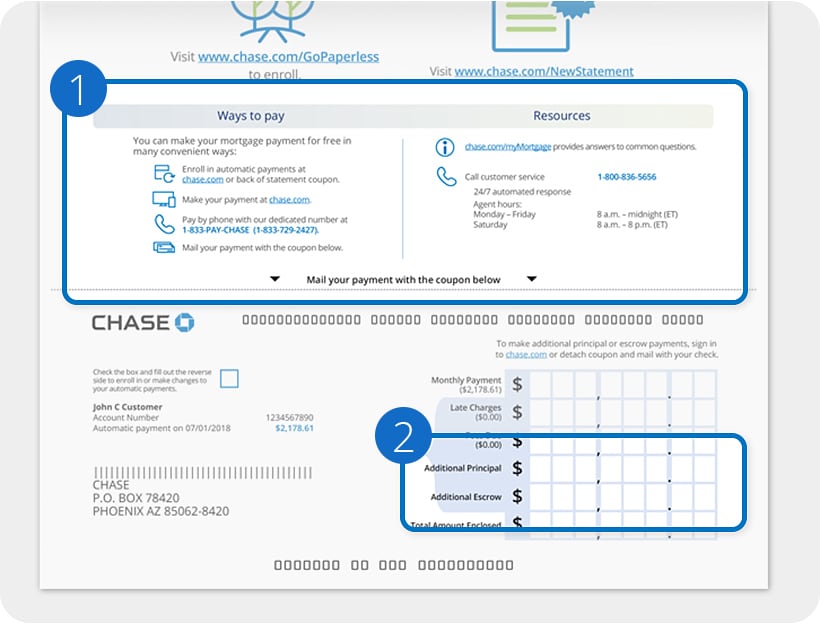Buying a home is one of life's biggest milestones, but it can also feel like navigating a maze of paperwork and financial jargon. If you're considering a mortgage, Chase Mortgage Loan could be your ticket to turning that dream into reality. But before you dive in, let's break down what it all means and how it works. Think of this as your personal guide to understanding Chase Mortgage Loans, so you're not left scratching your head when the terms start flying.
Now, you might be wondering, "What makes Chase Mortgage Loan different from the rest?" Great question! Chase, as one of the biggest banks in the U.S., offers a wide range of mortgage options tailored to different needs. Whether you're buying your first home, refinancing, or even building your dream house, they've got something for everyone. But like any financial decision, it's important to know the ins and outs before you sign on the dotted line.
Here's the deal: Owning a home isn't just about having a roof over your head; it's about creating a space that reflects who you are and building equity for the future. A Chase Mortgage Loan can help make that happen, but only if you're fully informed. So, buckle up because we're about to deep-dive into everything you need to know about Chase Mortgage Loans, from the basics to the nitty-gritty details.
Read also:Kelsey Grammer A Comprehensive Look At The Iconic Actors Career And Legacy
Understanding Chase Mortgage Loan Basics
What Exactly is a Chase Mortgage Loan?
Alright, let's start with the basics. A Chase Mortgage Loan is essentially a loan you take out to buy a home. Instead of paying the full price upfront, you borrow the money from Chase Bank and pay it back over time, usually with interest. It's like renting, but instead of lining someone else's pockets, you're building equity in your own property. Pretty cool, right?
Now, Chase offers different types of mortgage loans, each designed for specific situations. For example, there are fixed-rate mortgages where your interest rate stays the same throughout the loan term, and adjustable-rate mortgages where the rate can change based on market conditions. There are also options for first-time homebuyers, veterans, and even people looking to buy investment properties.
Types of Chase Mortgage Loans
Let's break it down further. Here are some of the most common types of Chase Mortgage Loans:
- Fixed-Rate Mortgages: As the name suggests, these loans have a fixed interest rate for the entire loan term, typically 15 or 30 years. They're great if you want stability and predictability in your monthly payments.
- Adjustable-Rate Mortgages (ARMs): These loans start with a lower interest rate, but it can adjust after a certain period based on market conditions. They're ideal if you plan to sell or refinance before the rate changes.
- FHA Loans: Backed by the Federal Housing Administration, these loans are perfect for first-time homebuyers or those with lower credit scores. They often require a smaller down payment.
- VA Loans: Available to eligible veterans and service members, these loans offer competitive rates and often don't require a down payment.
Choosing the right type of mortgage depends on your financial situation, long-term goals, and how long you plan to stay in the home. It's like picking the right pair of shoes—comfort and fit are key!
Eligibility and Requirements for Chase Mortgage Loans
Do You Qualify for a Chase Mortgage Loan?
Before you start shopping for homes, it's important to know if you qualify for a Chase Mortgage Loan. Chase has specific eligibility criteria that they use to determine whether you're a good candidate. Here's what they typically look for:
- Credit Score: Chase generally requires a credit score of at least 620 for conventional loans, but this can vary depending on the type of loan. The higher your score, the better your chances of getting approved with favorable terms.
- Debt-to-Income Ratio (DTI): This is the percentage of your monthly income that goes toward paying debts. Chase usually prefers a DTI of 43% or lower, but again, this can vary.
- Down Payment: The required down payment depends on the type of loan. For conventional loans, you might need 3-20%, while FHA loans allow as little as 3.5%.
- Employment History: Chase likes to see a stable employment history, usually at least two years in the same line of work.
Meeting these requirements doesn't guarantee approval, but it certainly increases your chances. Think of it like auditioning for a role—you need to bring your A-game to impress the casting directors.
Read also:Texas Senate Passes Bill To Ban Thc Products What You Need To Know
Steps to Apply for a Chase Mortgage Loan
Applying for a Chase Mortgage Loan might sound intimidating, but it's actually pretty straightforward. Here's a step-by-step guide to help you through the process:
- Pre-Approval: Start by getting pre-approved. This gives you an idea of how much you can borrow and shows sellers that you're a serious buyer.
- Gather Documents: You'll need to provide proof of income, tax returns, bank statements, and other financial documents. Think of it as packing for a trip—everything you need should be in one place.
- Choose a Loan Type: Based on your needs and eligibility, select the type of mortgage that works best for you.
- Submit Your Application: Complete the application process either online or in person. Chase makes it easy with their user-friendly platform.
- Wait for Approval: Once your application is submitted, Chase will review it and let you know if you're approved. This can take a few days to a few weeks, depending on the complexity of your situation.
Remember, the key to a smooth application process is preparation. The more organized you are, the less stressful it will be.
Advantages of Choosing Chase Mortgage Loan
Why Chase Over Other Lenders?
So, why should you choose Chase Mortgage Loan over other lenders? Here are a few reasons:
- Wide Range of Options: Chase offers a variety of mortgage products to suit different needs and circumstances.
- Competitive Rates: Chase is known for offering competitive interest rates, which can save you thousands over the life of the loan.
- Strong Customer Service: With a large network of branches and a dedicated mortgage team, Chase provides excellent customer support throughout the process.
- Convenience: Whether you prefer online applications or in-person consultations, Chase makes it easy to apply for a mortgage.
Choosing Chase means you're partnering with a reputable financial institution that has your best interests in mind. It's like having a financial GPS to guide you through the home-buying journey.
Common Misconceptions About Chase Mortgage Loans
There are a few misconceptions floating around about Chase Mortgage Loans that we need to clear up:
- Myth: Chase Only Works with Wealthy Clients: Not true! Chase offers mortgage options for a wide range of income levels, including first-time homebuyers and those with lower credit scores.
- Myth: The Process is Complicated: While applying for a mortgage can seem daunting, Chase simplifies the process with clear instructions and dedicated support.
- Myth: You Need Perfect Credit: While a higher credit score can get you better terms, Chase offers options for those with less-than-perfect credit as well.
Don't let these myths deter you from exploring Chase Mortgage Loans. The truth is, they're accessible and beneficial for many homebuyers.
Understanding Mortgage Rates and Fees
What Determines Your Mortgage Rate?
Your mortgage rate is influenced by several factors, including:
- Credit Score: Higher scores typically lead to lower rates.
- Down Payment: A larger down payment can reduce your rate.
- Loan Type: Different loan types come with different rates.
- Market Conditions: Economic factors like inflation and Federal Reserve policies can impact rates.
It's important to shop around and compare rates from different lenders to ensure you're getting the best deal. Think of it like bargain hunting for the perfect pair of jeans—you want the best fit at the best price.
Hidden Fees to Watch Out For
While mortgage rates get all the attention, don't forget about fees. Here are some common ones:
- Origination Fee: This covers the cost of processing your loan.
- Appraisal Fee: Paid to assess the value of the property.
- Title Insurance: Protects against issues with the property's title.
- Closing Costs: Various fees associated with finalizing the loan.
Make sure you understand all the fees upfront so there are no surprises at closing. It's like reading the fine print before signing a contract—you want to know exactly what you're getting into.
Refinancing with Chase Mortgage Loan
Is Refinancing Right for You?
Refinancing involves replacing your existing mortgage with a new one, usually to get a lower rate or better terms. Here are some scenarios where refinancing might make sense:
- Lower Interest Rates: If rates have dropped since you got your original loan, refinancing could save you money.
- Shorter Loan Term: Switching to a shorter term can reduce the total interest paid over the life of the loan.
- Cash-Out Refinance: This option allows you to tap into your home's equity for other expenses.
However, refinancing isn't always the best choice. It's important to weigh the costs and benefits before making a decision.
Steps to Refinance with Chase
Refinancing with Chase is similar to applying for a new mortgage. Here's how you can do it:
- Assess Your Needs: Determine why you want to refinance and what you hope to achieve.
- Gather Documents: Just like with a new mortgage, you'll need to provide financial documents.
- Apply Online or In-Person: Chase makes it easy to apply for refinancing through their platform.
- Wait for Approval: Once approved, you'll receive a new loan with updated terms.
Refinancing can be a powerful tool, but it's crucial to do your homework and ensure it aligns with your financial goals.
Customer Experiences with Chase Mortgage Loan
What Are People Saying?
Customer reviews can provide valuable insights into what it's like to work with Chase Mortgage Loan. Here are a few common themes:
- Positive Experiences: Many customers praise Chase for their competitive rates, excellent customer service, and user-friendly application process.
- Negative Experiences: Some customers have reported delays in processing or difficulties with communication, but these cases are generally rare.
Reading reviews can help you set realistic expectations and prepare for any potential challenges.
Tips for a Smooth Experience
Here are some tips to ensure a smooth experience with Chase Mortgage Loan:
- Stay Organized: Keep all your documents in one place and track your progress.
- Communicate Clearly: If you have questions or concerns, don't hesitate to reach out to your mortgage specialist.
- Be Patient: The mortgage process can take time, so try to stay calm and focused.
Remember, the key to success is preparation and communication. Treat the process like a marathon, not a sprint.
Final Thoughts on Chase Mortgage Loan
In conclusion, Chase Mortgage Loan offers a wide range of options to help you achieve your homeownership dreams. From competitive rates to excellent customer service, Chase has everything you need to make the process as smooth as possible. But remember, owning a home is a significant financial commitment, so it's important to do your research and make informed decisions.
So, what's next? If you're ready to take the plunge, start by getting pre-approved and exploring your options. And don't forget to share this article with friends or family who might find it helpful
![Buying a Home? Mortgage Rate Guide for Singapore [2023]](https://blog.roshi.sg/wp-content/uploads/2022/08/Singapore-Home-Loan-Rates-2022.jpeg)

